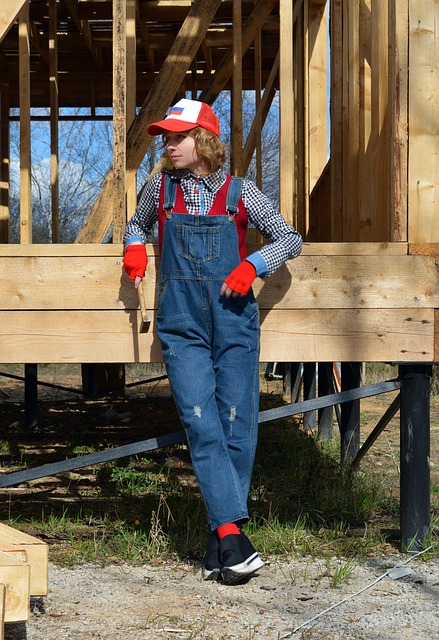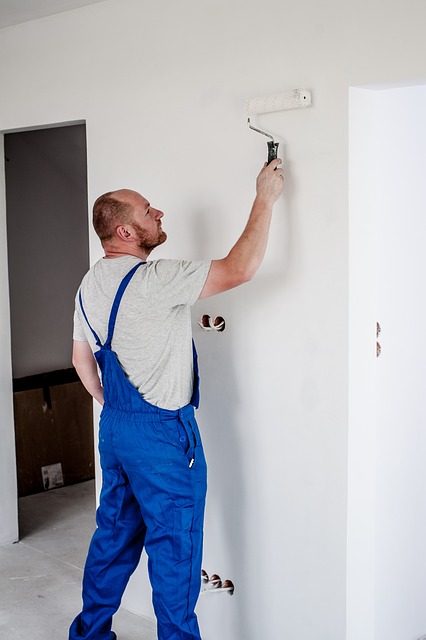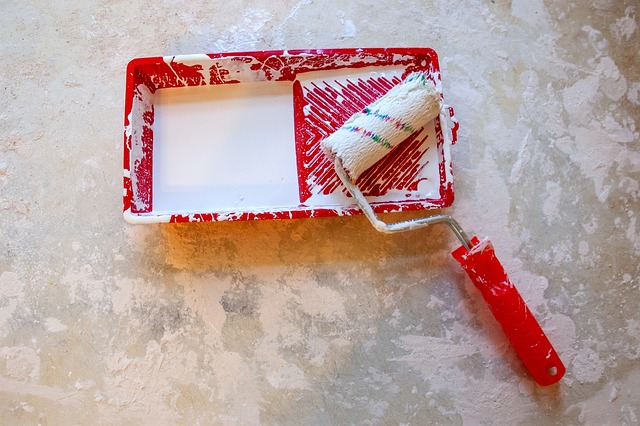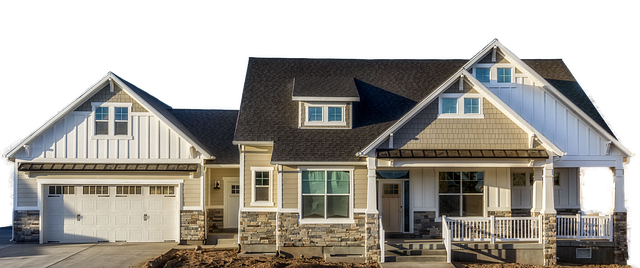Concrete slab damage, caused by soil settlement, moisture changes, or heavy loads, requires expert attention for repair. Minor cracks can be fixed with surface patching, while severe cases may need under-slab jacking or piering to stabilize and level the concrete. Prompt repair is crucial to prevent water penetration, mold growth, and structural failures. Professional Residential Foundation Repair services use advanced technologies and materials to fix slabs swiftly and efficiently without disrupting daily life. Budgeting considers damage extent, with simple cracks requiring filling and sealing, while complex issues may involve replacement concrete or steel reinforcement. Choosing a licensed, insured contractor with positive reviews ensures reliable solutions.
“Concrete slab damage is a common concern for homeowners, impacting structural integrity and property value. Understanding the causes, from cracks to settlement, is key to effective repair. This article delves into various concrete slab repair services, highlighting the importance of timely interventions in preventing costly damages. We explore different techniques, including non-invasive methods and traditional approaches, offering guidance on choosing the right contractor for seamless residential foundation repair.”
Understanding Concrete Slab Damage: Common Causes and Types of Repair

Concrete slab damage is a common concern for homeowners, often requiring expert attention for effective repair. Understanding the causes and types of concrete slab damage is crucial in choosing the right Residential Foundation Repair solution. One of the primary reasons for concrete slabs to crack or sink is soil settlement or shifting. This can occur due to factors like poor soil compaction during construction, changes in moisture content, or heavy loads placed on the structure. Over time, these issues manifest as cracks, uneven floors, or slanted walls, indicating a need for repair.
Additionally, concrete slabs can suffer damage from structural failures, such as faulty rebar placement or design flaws, leading to significant cracks and heaves. Water intrusion is another common culprit, causing corrosion of steel reinforcement bars and weakening the slab’s integrity. Repairs involve methods like surface patching for minor cracks, where a mixture of cement and aggregate fills the gaps. For more severe cases, under-slab jacking or piering can stabilize and level the concrete, addressing settlement issues.
The Importance of Timely Repairs: Preventing Further Damage and Costs

When it comes to concrete slab repair, timing is crucial. Delays in addressing issues can lead to more extensive and costly damage over time. Concrete slabs form the foundation of many residential structures, and any weakness or cracks can compromise the structural integrity of a home. Timely repairs are essential for preventing further deterioration that might render the slab unstable or even pose safety hazards.
Neglecting concrete slab repair can result in water penetration, leading to moisture-related problems like mold growth and reduced insulation efficiency. It also increases the risk of serious structural failures, which not only necessitate expensive replacement but also disrupt the comfort and value of your home. Regular maintenance checks and prompt action on any signs of damage are key to ensuring longevity and stability for both residential structures and their foundations.
Residential Foundation Repair: Evaluating Your Home's Structural Integrity

Residential foundation repair is a critical aspect of maintaining your home’s structural integrity. As time goes on, various factors—including settlement, shifting soil, and extreme weather conditions—can cause cracks or deformities in concrete slabs that form the basis of your home. These issues can compromise the safety and stability of your living space, leading to costly damages if left unaddressed.
When considering residential foundation repair services, it’s essential to have a thorough evaluation performed by professionals. They will inspect the slab for signs of damage, assess the soil conditions around your property, and determine the root cause of any structural problems. Based on their findings, they’ll recommend appropriate solutions tailored to your specific needs, ensuring your home’s foundation is restored to its optimal condition.
Non-Invasive Repair Techniques: Minimally Disruptive Solutions for Your Home

In today’s digital era, homeowners are increasingly seeking non-invasive repair techniques for their residential foundation issues, especially concrete slab repairs. These minimally disruptive solutions offer a fresh approach to addressing problems without the hassle and costs associated with traditional, more invasive methods. By employing advanced technologies and innovative materials, professional Concrete Slab Repair Services can effectively fix cracks, holes, and other damage while preserving the structural integrity of your home and minimizing disturbance to your daily life.
Non-invasive repair techniques are particularly appealing for homeowners due to their speed, efficiency, and long-lasting results. These methods often involve the application of specialized coatings, sealers, or injection materials that fill and strengthen cracks, preventing further damage and water intrusion. Unlike traditional methods that may require extensive excavation and structural alterations, non-invasive repairs keep disruptions to a minimum, preserving your home’s aesthetic and value while effectively addressing the underlying foundation issues.
Traditional Concrete Repair Methods: When and Why They Are Used

In the realm of structural integrity, concrete slab repair services play a pivotal role, especially in the context of residential foundation repair. Traditional methods have long been the go-to solution for addressing various issues within concrete structures. These techniques are employed when cracks, holes, or other defects compromise the strength and stability of slabs. One common approach involves the use of mortar or epoxy injections to fill gaps and reinforce weak points, effectively preventing further damage.
The reliance on these traditional methods stems from their proven track record in enhancing the longevity of concrete slabs. They are particularly effective for controlling water infiltration, which is a significant concern in residential foundation repair. By sealing cracks and openings, these methods prevent moisture from seeping into the slab, thereby mitigating potential structural issues caused by corrosion or erosion.
Cost Considerations: Budgeting for Slab Repair Projects

When considering concrete slab repair services, budgeting is a key aspect that cannot be overlooked. The cost of residential foundation repair varies greatly depending on several factors. One of the primary determinants is the extent of damage to your slab. Simple cracks or chips may only require filling and sealing, which is typically less expensive. However, more complex issues like large cracks, heaving (when the slab rises due to ground movement), or settlement can lead to more extensive repairs, potentially involving replacement concrete, steel reinforcement, or even piering and underpinning techniques.
It’s important to remember that these projects are investments in your home’s structural integrity and long-term value. While the upfront costs may vary widely, it’s crucial to consider the potential future savings from a stable foundation. Many homeowners opt for professional services to ensure the job is done right, which can be more cost-effective in the long run than DIY solutions or delaying necessary repairs.
Choosing the Right Contractor: Tips for Selecting Reliable Foundation Repair Services

Choosing the right contractor is paramount when it comes to reliable residential foundation repair services. Start by researching potential candidates, checking their credentials, and obtaining references from previous clients. Look for specialists with extensive experience in various types of foundation repairs, as this indicates versatility and adaptability to your specific needs. Ensure they are licensed and insured, as this safeguards against any unforeseen issues and gives you peace of mind.
Reputation is also key; opt for a contractor with positive reviews and satisfied customers. Online platforms can be a great resource for finding honest feedback from previous clients. Additionally, consider their communication and customer service skills; effective and transparent communication throughout the repair process is essential for ensuring your comfort and addressing any concerns promptly.
